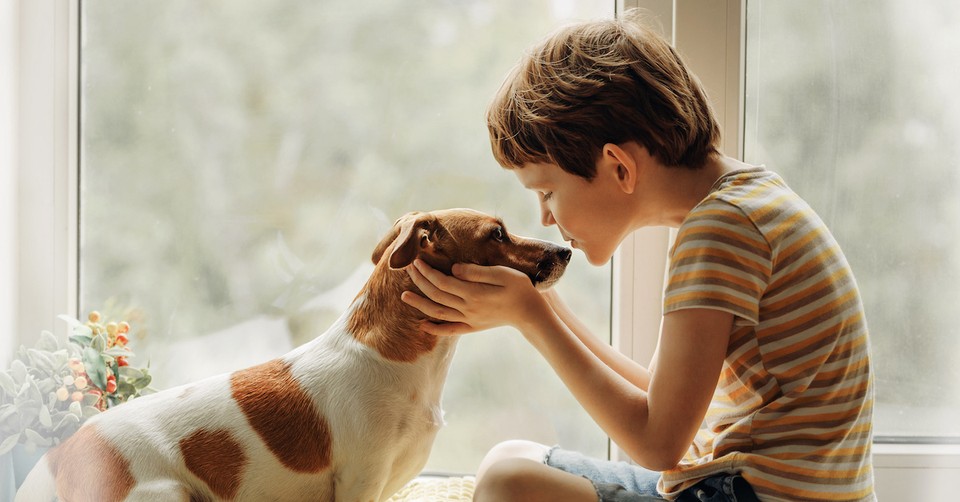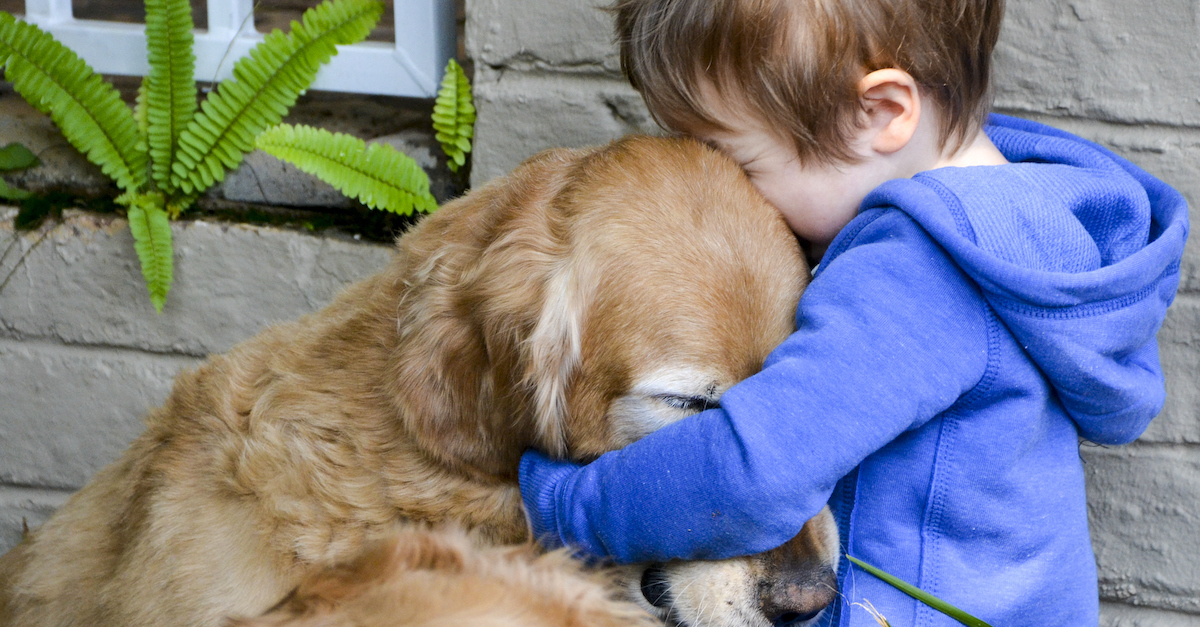How to Help Your Child Handle the Loss of a Pet

Pets are a part of the family in so many ways. Their personalities become known and unique, and they squirm their furry way into your heart and find their place there. Or, if you’re more bent toward the reptilian or amphibian families, there’s room in the pet kingdom for you as well. We won’t comment on those of you who feel like a fuzzy arachnid can be a pet.
Regardless, as adults, we can sometimes have a very difficult time when it comes to saying goodbye to that beloved animal member of the family. But explaining the loss of a pet to our child can be another matter altogether. Cue the movie “All Dogs Go to Heaven,” and you know what I mean. That’s typically the first question. “Will I see them in Heaven?”
Our kneejerk reaction is typically a firm “yes” because we want to believe that and because it instantly soothes the grief that comes with loss. But if we’re honest—brutally so—there really isn’t a firm indication in Scripture that pets go to Heaven. They may, or they may not. We know they weren’t created with souls, which differentiates pet and human passings in a big way. But that’s getting deeper than we’d ever go with our children in most scenarios. Backing up to the context of pet loss, we have to be able to maneuver it without empty promises to our children.
So how do we help our children process the loss of their pet? Here are a few ideas to consider:
1. Recognize the validity of their grief.
Depending on your perspective of pet loss, sometimes the death of an animal is downplayed with comments that dismiss it as being a valid type of grief. Comments such as, “it was just an animal,” “we’ll get you another one,” and “just be glad it wasn’t Grandma.” Those comments may reflect the truth as you see it, but they can also be hurtful and damaging to a child who is experiencing the first grapple with death.
Yes, we want to help our children walk through the process of death and not remain in their grief to wallow but recognizing that their grief is very real is critical in helping them move forward. Be cautious of minimizing their sadness and instead acknowledge it as a very real and raw emotion. You don’t want them to feel as if grieving the loss of their pet makes them weak, bad, or silly.

Photo credit: ©GettyImages/Holly_Powers
2. Help them find creative ways to remember their pet.
This doesn’t necessarily mean keeping your pet’s ashes in the living room. We need to bring grief and remembrance to a child’s level, which means we need to see sorrow through their eyes.
When my daughter’s cat passed away, her grief was so palpable it hurt to watch. But we also encouraged her to remember her cat and focus on the good memories she could cherish. In doing so, we helped her pick out a stuffed animal (a cat, no less) that could represent the memories she’d shared with her beloved pet. To this day, the stuffed cat is a precious and cherished part of her collection and sits beside a framed photograph of her “Ivy-kitty.”
That may not be the response of all children. Maybe they need to verbalize their memories, draw pictures, or even have a memorial service. That one seems a bit extreme, I know, but think back to the days when we were kids. I’m guessing many of you held that memorial service for the poor bird that hit the living room window and was found on your lawn. I remember the shoebox coffin, the hymn-sing with my friends, and the prayers that God would help it wing its way to Heaven.
3. Have a slumber party or special event to share with your child.
Sometimes, honestly, grief needs some diverting back to the positives of life. Frankly put, after the grief has been acknowledged and the appropriate steps taken to remember the life of your pet, moving on is a good thing.
You may want to get your child excited about a slumber party with you in the family, with sleeping bags, movies, and popcorn. Or perhaps you take them to the local pool for a swim night. Maybe it’s just out to their favorite restaurant and allow them to get that dessert they especially love. These happy memory-making moments can truly bring in the healing process for a child. It also helps the child understand that, yes, grief is real, but life can go forward.
4. Let your kiddo call Grandma and/or Grandpa.

Or maybe it’s someone else that holds a special place in your child’s life. Sometimes a child needs to express their emotion to someone other than a parent, who may be attempting to bring reason and reality to the situation—as they rightly should at some point. The bonus of a grandparent or special person is that person can cast aside the responsibilities that come with parenting a child through the loss of a pet. They can embrace the moment, the grief, the one who comes alongside and offers no logic or reason, just love, and understanding. As parents, sometimes we can see this as threatening to us as the comforters of our children. But really, it’s calling in the reinforcements. Trust me. Doting grandparents make for fabulous reinforcements in times of grief.
In short, your child is resilient. They will bounce back—maybe even quicker than you do. But it’s important to treat the loss of their pet as a momentous occasion in their young lives. They will remember it for years to come—and they’ll remember your reaction to it. It may very well help set the stage for the impactful loss of a family member or other influential person in their life.
A child’s foray through pet grief is often their first walk through the valley of death. So regardless of whether you view pets as treasured parts of the family or you view them as animals that come and eventually go, and that’s just what an animal is, your child will most likely not have made those differentiations. They will have adopted the animal into their hearts with no holds barred on love and affection. When that pet is no longer there, the empty place will be stark. Your reaction to their sense of loss may become their first glimpse at how to grieve. So it is important to consider this, especially if you feel mourning an animal is something to do quickly and move on from.
Pets are, after all, a part of God’s creation. Do they go to Heaven? I’d sure like to think so. But I can’t promise my child that their pet has eternal security. Instead, I can help direct their thoughts to the good memories, acknowledge God's gift in the form of their beloved animal, and help them grieve and then move forward. It is, after all, what that pet would do were they still here. They would comfort. It’s what pets do. It’s why we love them so much.
Related Article:
Photo credit: ©GettyImages/ulkas
Jaime Jo Wright is an ECPA and Publisher’s Weekly bestselling author. Her novel “The House on Foster Hill” won the prestigious Christy Award and she continues to publish Gothic thrillers for the inspirational market. Jaime Jo resides in the woods of Wisconsin, lives in dreamland, exists in reality, and invites you to join her adventures at jaimewrightbooks.com and at her podcast madlitmusings.com where she discusses the deeper issues of story and faith with fellow authors.
Originally published June 07, 2022.







